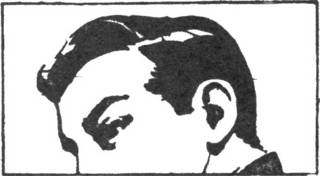Turn on the car radio, and chances are a bhangra number will come on soon enough, urging you to 'chak de phatte'. All very good and rousing, but uhm, what is one supposed to do beyond the usual one-legged hop with fingers pointing heavenwards (whiskey glass balanced on head, optional)? I know what the phrase means literally, something like 'lift up the planks' in Punjabi, but how exactly does one
chak the said
phattas? And what is the true origin of this now ubiquitous Punjabi slang phrase? I googled around a bit and found quite a few explanations, most of them spurious no doubt. Here are the more plausible origins, this first one from the
Urban Dictionary :
Chak De Phatte -though loosely translated as pick up the floorboards is more of a war cry than a housekeeping call. The origins of the phrase lie in the times when the Khalsa i.e. the original warrior Sikhs were formed, they would cross canals and attack Mughal camps in a blitzkrieg attack and then just as they came would retreat leaving the enemy helpless. The sport of tent pegging also evolved from this camp raiding where the riders would remove the pegs of the tents trapping the occupants under, what then used to be a very heavy fabric. While escaping back to their base the Khalsa warriors would dismantle any temporary bridges constructed by them(made out of 'Phatte') to prevent the Mughals from chasing them and sometimes to prevent the enemy from escaping, hence the cry 'Chak De Phatte'. The phrase then acquired the meaning: to complete the route. And is now used as in the figure of 'Bring the house down!'.
And here's another plausible explanation, found in a comment posted by
Subrat to a review of the movie Chak De at Water, No Ice:
Chak De comes from Chak De Phatte. While the term loosely does mean ‘come on’ or ‘go for it’ (obvious from its usage), it traces its origins to the farms of Punjab. The motor which pumps water into the fields is normally underground and is covered with wooden planks (called phatte in Punjabi). When you want to turn on the motor, you were asked to ‘chak de phatte’ which meant turn the planks over. It was a sort of clarion call to get down to business. The term that followed this was ‘Nap de Killi’ which meant turn on the tap. Hence, these two terms are used together - “chak de phatte, nap de killi”. So there ends my small dissertation on Punjabi folklore (must admit I have never been to the fields of Punjab to hear this).
And a
third, which attributes the origin to bhangra bands in the UK:
‘Phatte’ is also synonymous with wooden floor boards. So when desi bands in the UK needed a cool phrase to hook their music (bhangra) on, they used a literal translation of ‘beat up the floor boards’ or chak de phatte.


